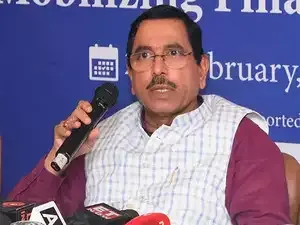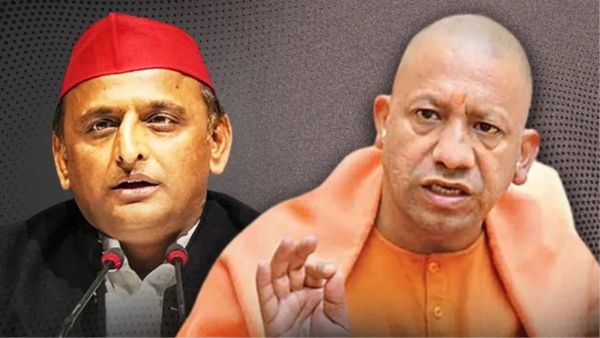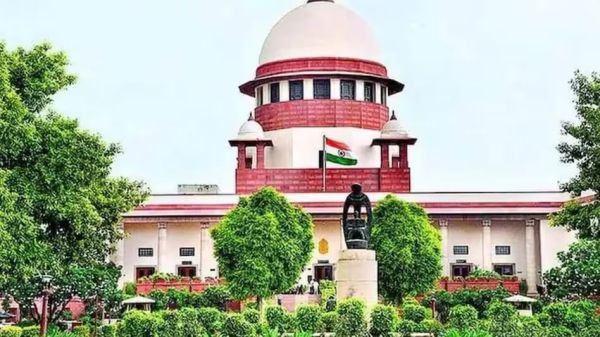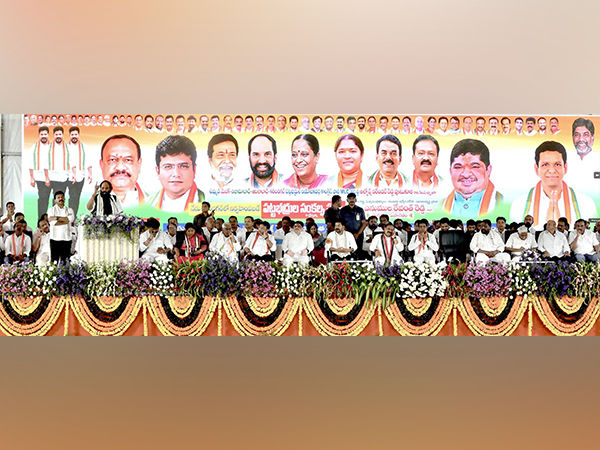Mumbai: Mobilising finance is key to achieving 500 GW of renewable energy production by 2030 and the country will require Rs 32 lakh crore to reach the target, Union Minister Pralhad Joshi said on Monday. Calling for a national movement to boost funding in the sector, the minister urged financial institutions to streamline lending processes, reduce unnecessary compliance burdens, and adopt a more supportive approach towards financing clean energy projects
Overall, an amount of Rs 32 lakh crore is required to achieve the target of 500 GW of renewables by 2030, the minister said at a national workshop on mobilising finance for renewable energy organised by the Union Ministry of New and Renewable Energy here along with his deputy Shripad Naik.
Joshi said that the idea for the workshop emerged after a review meeting chaired by Prime Minister Narendra Modi, where discussions focused on accelerating flagship schemes like PM Surya Ghar and PM-KUSUM, according to an official release.
The workshop featured four key sessions, including those on financing landscapes for utility scale renewable energy projects, financing on new and emerging RE technology, financing challenges for distributed renewable energy and innovative RE applications and regulatory and capacity-building measures for banks and NBFCs, as per the release.
The stakeholders highlighted the need for better regulatory frameworks, risk-sharing mechanisms, and financial instruments to unlock capital for India's renewable energy ambitions.
The discussions reinforced the necessity of collaborative efforts among policymakers, financial institutions, and industry leaders to mobilize large-scale investments and achieve India's target of 500 GW of non-fossil fuel energy by 2030, the release said.
Joshi said that as the country aims to become the third-largest economy, its energy demand is expected to double. He stressed that renewable energy must be scaled up to match thermal energy production, ensuring a reliable and resilient power supply.
Stating India's commitment to achieving net zero carbon emission by 2070 and reaching 500 GW of non-fossil fuel-based energy capacity by 2030, Joshi called upon financial institutions to align their lending policies with India's renewable energy growth strategy and emphasized that carbon-intensive industries will face reduced export opportunities in the future.
He noted that the country has already made significant progress in renewable energy, with capacity increasing to 222 GW today.
The minister, according to the release, urged banks to simplify financing processes, particularly for rooftop solar projects, and called for the introduction of a renewable energy financing obligation to ensure dedicated funding for the sector, similar to renewable purchase obligations for discoms.
About green hydrogen, the minister said that the country has already received major export orders and is ahead of several developed nations in this field.
He noted that global investors are increasingly looking at India as a preferred destination for manufacturing and clean energy investments, recognizing its young workforce and strong industrial capacity.
Joshi also highlighted Prime Minister Modi's directive to engage global financial institutions for renewable energy investments, and emphasised that the transition to renewable energy is not optional but it is a necessity.
The minister also called for a national movement in renewable energy financing, stating that PM Surya Ghar is not just a scheme but an 'andolan' (movement) while urging financial institutions to streamline lending processes, reduce unnecessary compliance burdens, and adopt a more supportive approach towards financing clean energy projects.
Later addressing a press conference, the minister said that the sector has seen substantial growth in the last 10 years.
Stating that the workshop identified several good ideas to scale up the financing to the tune of Rs 5-6 lakh crore per year to achieve the target of Rs 30 lakh crore by 2030, he said, one is bringing the stronger participation of the mainstream public sector lenders into the utility scale RE, which means bigger projects.
"Second one is (to) develop the credit enhancement mechanism to bring the pension, insurance and corporate bond capital in RE in a big way besides continuous monitoring of the reduction of the project risk, transmission delay, PPA delay and land issues as well as get the lenders to develop the specific product for the development of the stage, construction stage and non-fund," he said.
"Developing the fixed interest rate mechanism through the derivatives market or debt capital markets will further unleash the need to bring the international lenders into the Indian market," he said.
The workshop also discussed financing of the PM Kusum scheme for the irrigation of the farm lands and the PM Surya Ghar scheme for rooftop solar.
"So (for) these two projects, the banks have been requested to initiate and to sort out the issues which are coming up for the financing...," he said.
Trump-Modi Meet
The mega MIGA, MAGA plans of India's Modi and US' Trump
Trump says India has more tariffs than others
Trump's 'golden rule' for imposing reciprocal tariffs
Joshi said that the idea for the workshop emerged after a review meeting chaired by Prime Minister Narendra Modi, where discussions focused on accelerating flagship schemes like PM Surya Ghar and PM-KUSUM, according to an official release.
The workshop featured four key sessions, including those on financing landscapes for utility scale renewable energy projects, financing on new and emerging RE technology, financing challenges for distributed renewable energy and innovative RE applications and regulatory and capacity-building measures for banks and NBFCs, as per the release.
The stakeholders highlighted the need for better regulatory frameworks, risk-sharing mechanisms, and financial instruments to unlock capital for India's renewable energy ambitions.
The discussions reinforced the necessity of collaborative efforts among policymakers, financial institutions, and industry leaders to mobilize large-scale investments and achieve India's target of 500 GW of non-fossil fuel energy by 2030, the release said.
Joshi said that as the country aims to become the third-largest economy, its energy demand is expected to double. He stressed that renewable energy must be scaled up to match thermal energy production, ensuring a reliable and resilient power supply.
Stating India's commitment to achieving net zero carbon emission by 2070 and reaching 500 GW of non-fossil fuel-based energy capacity by 2030, Joshi called upon financial institutions to align their lending policies with India's renewable energy growth strategy and emphasized that carbon-intensive industries will face reduced export opportunities in the future.
He noted that the country has already made significant progress in renewable energy, with capacity increasing to 222 GW today.
The minister, according to the release, urged banks to simplify financing processes, particularly for rooftop solar projects, and called for the introduction of a renewable energy financing obligation to ensure dedicated funding for the sector, similar to renewable purchase obligations for discoms.
About green hydrogen, the minister said that the country has already received major export orders and is ahead of several developed nations in this field.
He noted that global investors are increasingly looking at India as a preferred destination for manufacturing and clean energy investments, recognizing its young workforce and strong industrial capacity.
Joshi also highlighted Prime Minister Modi's directive to engage global financial institutions for renewable energy investments, and emphasised that the transition to renewable energy is not optional but it is a necessity.
The minister also called for a national movement in renewable energy financing, stating that PM Surya Ghar is not just a scheme but an 'andolan' (movement) while urging financial institutions to streamline lending processes, reduce unnecessary compliance burdens, and adopt a more supportive approach towards financing clean energy projects.
Later addressing a press conference, the minister said that the sector has seen substantial growth in the last 10 years.
Stating that the workshop identified several good ideas to scale up the financing to the tune of Rs 5-6 lakh crore per year to achieve the target of Rs 30 lakh crore by 2030, he said, one is bringing the stronger participation of the mainstream public sector lenders into the utility scale RE, which means bigger projects.
"Second one is (to) develop the credit enhancement mechanism to bring the pension, insurance and corporate bond capital in RE in a big way besides continuous monitoring of the reduction of the project risk, transmission delay, PPA delay and land issues as well as get the lenders to develop the specific product for the development of the stage, construction stage and non-fund," he said.
"Developing the fixed interest rate mechanism through the derivatives market or debt capital markets will further unleash the need to bring the international lenders into the Indian market," he said.
The workshop also discussed financing of the PM Kusum scheme for the irrigation of the farm lands and the PM Surya Ghar scheme for rooftop solar.
"So (for) these two projects, the banks have been requested to initiate and to sort out the issues which are coming up for the financing...," he said.








